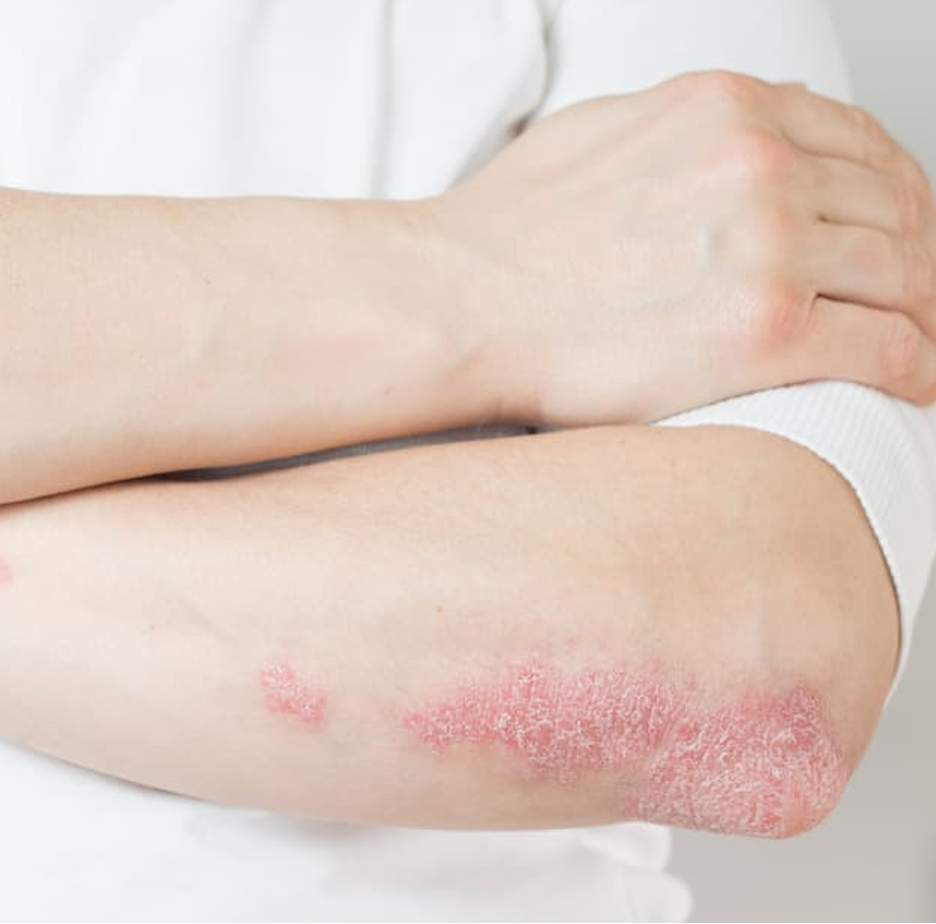A new study shows that patients with psoriatic arthritis and cutaneous psoriasis could be good candidates for total hip replacement. Their outcomes are about as good as patients with osteoarthritis, a large case review shows. Reporting in the Sept. 11 issue of Arthritis & Rheumatology, Lisa Mandl, MD, MPH, and colleagues of the Hospital for Special Surgery in New York, reviewed all cases of patients with psoriatic arthritis and cutaneous psoriasis between May 1, 2007 and December 31, 2010. The hospital is a high volume referral center that performs more than 4,300 total hip arthroplasties annually, and keeps a registry for more than 80% of those patients. Total hip arthroplasty (THA) in patients with psoriasis has not been thoroughly studied, the researchers wrote. Whether patients with psoriatic arthritis or cutaneous psoriasis and osteoarthritis are at an increased risk for worse outcomes after arthroplasty as compared to patients with osteoarthritis, is unknown because it has never before been studied. What is known: Total hip arthroplasty is effective in relieving pain, improving function and quality of life in patients with end stage hip arthritis. More than 90 percent of cases generally show clinical improvements lasting 10-15 years. The procedure is most commonly performed in patients with osteoarthritis, but the existing literature on outcomes in psoriatic arthritis is sparse.
SUMMARY
Total hip replacement is about as successful for psoriatic arthritis and cutaneous psoriasis as osteoarthritis patients.
- 94% of osteoarthritis patients were satisfied. 4% dissatisfied.
- 98% psoriatic arthritis patients were satisfied. 2% dissatisfied.
- 1% skin psoriasis patients were satisfied. 8% were dissatisfied.
Source: Arthritis & Rheumatology
[[{"type":"media","view_mode":"media_crop","fid":"41672","attributes":{"alt":"©Lightspring/Shuttersstock.com","class":"media-image media-image-left","id":"media_crop_7098691847641","media_crop_h":"0","media_crop_image_style":"-1","media_crop_instance":"4426","media_crop_rotate":"0","media_crop_scale_h":"0","media_crop_scale_w":"0","media_crop_w":"0","media_crop_x":"0","media_crop_y":"0","style":"font-size: 13.008px; line-height: 1.538em; float: left;","title":" ","typeof":"foaf:Image"}}]]The Mandl study evaluates short-term total hip arthroplasty outcomes in patients with psoriatic arthritis, cutaneous psoriasis and osteoarthritis controls. They found no significant difference in pre- or post-operative pain or function scores between the three groups. The final group included 63 cases of psoriatic arthritis, 153 cases of cutaneous psoriasis and 915 osteoarthritis controls. Patients submitted post-operative self-report data at 1 year, 2 years, and 3-5 years. More than 79% of each group was very satisfied and 1-3% of each group was very dissatisfied. “We had hypothesized that PsA and PsC would have worse outcomes after THA, similar to RA patients. However, in this nested case-control study, neither PsA nor psoriatic skin disease were independent risk factors for poor pain or function after THA. Interestingly, we also found that patients with PsA, PsC, and OA had similar levels of pain and disability at the time they chose THA. This contrasts with RA patients, who have worse pain and function at the time of total hip arthroplasty,” the authors of the study wrote. They found that worse pre-operative pain was associated with worse post-operative pain. The extent of skin disease had no effect on post-operative pain or functioning. “We would counsel patients with psoriasis that neither skin disease alone, nor extent of skin disease, is a risk factor for poor outcomes,” they wrote. This is in contrast to rheumatoid arthritis, which does have an increased risk of poor outcomes.
References:
Mandl LM, Zhu R, Huang W-T, et al.
Short Term Total Hip Arthroplasty Outcomes in Patients with Psoriatic Arthritis, Psoriasis Skin Disease, and Osteoarthritis. Arthritis & Rheumatology
. Online First: Sept. 11, 2015. doi: 10.1002/art.39431





